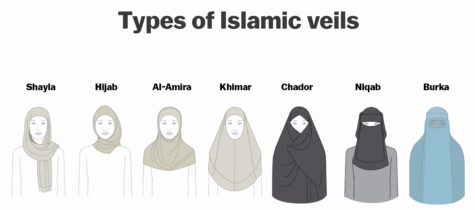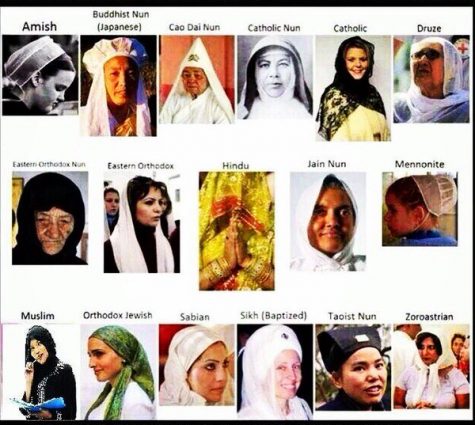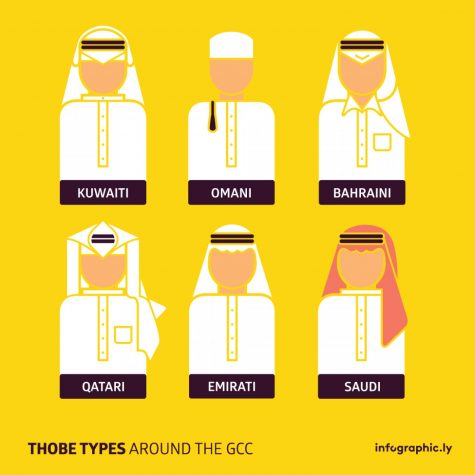Hijabi Culture
March 7, 2019
Hijab is an Arabic word meaning barrier or partition.
The wearing of the hijab has been a controversial topic in the west for several years now, however the actual cultural significance and purpose behind the garment has been very misconstrued.
According to the Merriam-Webster Dictionary, hijab is defined as “the traditional covering for the hair and neck that is worn by Muslim women.”
Hijab can also refer to both the type of covering itself, as well as the Islamic concept of modesty as a whole.
In fact, many garments, which are not a hijab, are labeled as such.

Only one of these is a hijab, but all can be considered hijab.
Furthermore, many other religions besides Islam wear head coverings for one reason or another.

But why do women wear the hijab?
“Muslim women choose to wear the hijab or other coverings for a variety of reasons. Some women wear the hijab because they believe that God has instructed women to wear it as a means of fulfilling His commandment for modesty. For these women, wearing hijab is a personal choice that is made after puberty and is intended to reflect one’s personal devotion to God. In many cases, the wearing of a headscarf is often accompanied by the wearing of loose-fitting, non-revealing clothing, also referred to as hijab,” according to an article by Arabs in America.
Wearing, or not wearing, the hijab is a personal religious choice by most Muslim women and is an agreement between them and God.
While mainstream western media would have people believe that the majority of women in the Middle East are forced to wear the hijab and that it is a symbol of female oppression, the Quran obliges modesty in males as well.
“Say to the believing men that they restrain their eyes and guard their private parts. That is purer for them. Surely, Allah is well aware of what they do.” The Quran 24:31.

This is not to say that women in the Middle East do not face oppression, for many face struggles every day of their lives.
Terrorist groups such as ISIS, the Taliban, and Boko Haram are all notorious for their abuse and terror against women.
However, regardless if you’re forcing a woman to be more modest, or less so, both are misogynistic, and in this case, Islamophobic.


